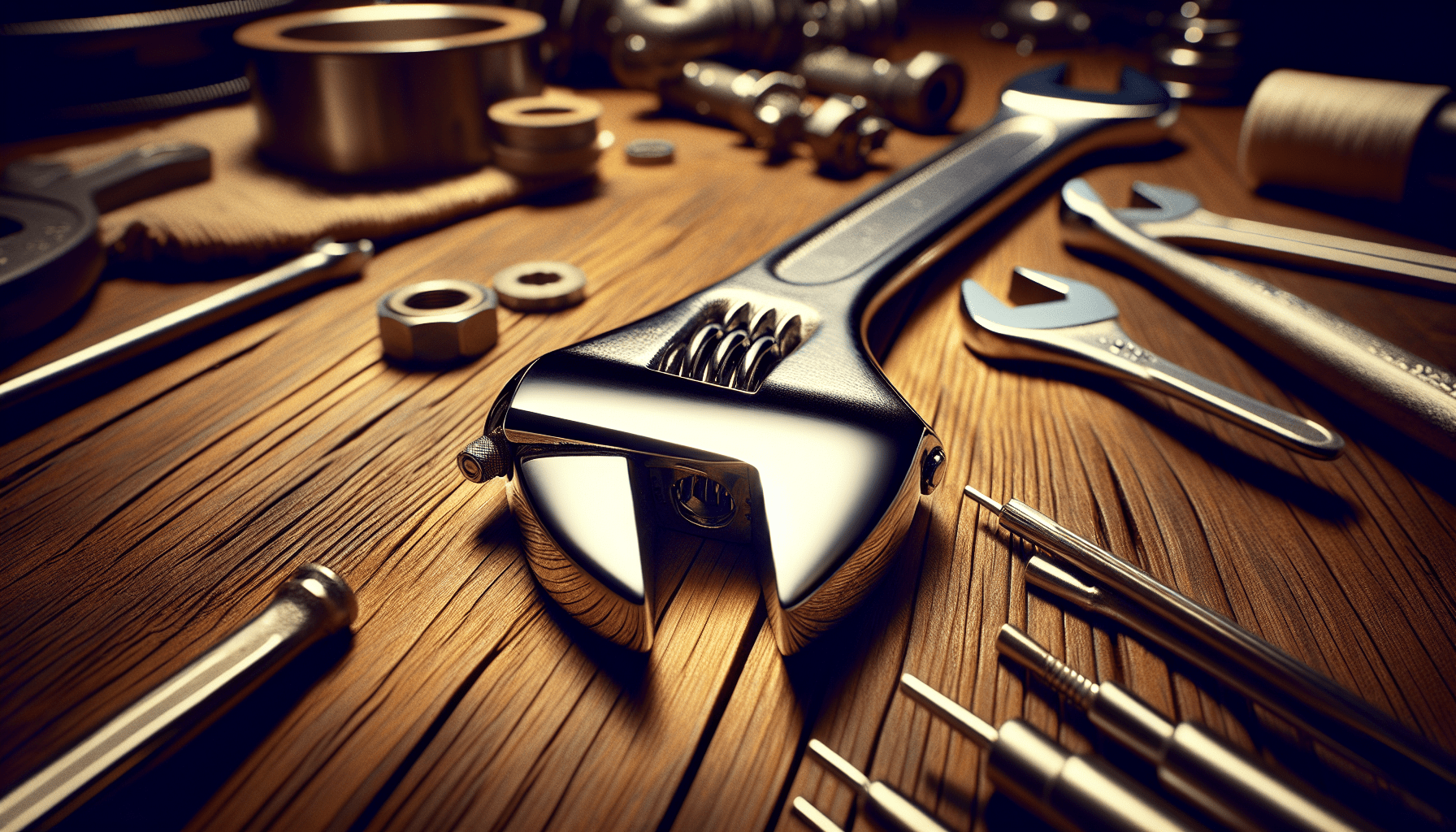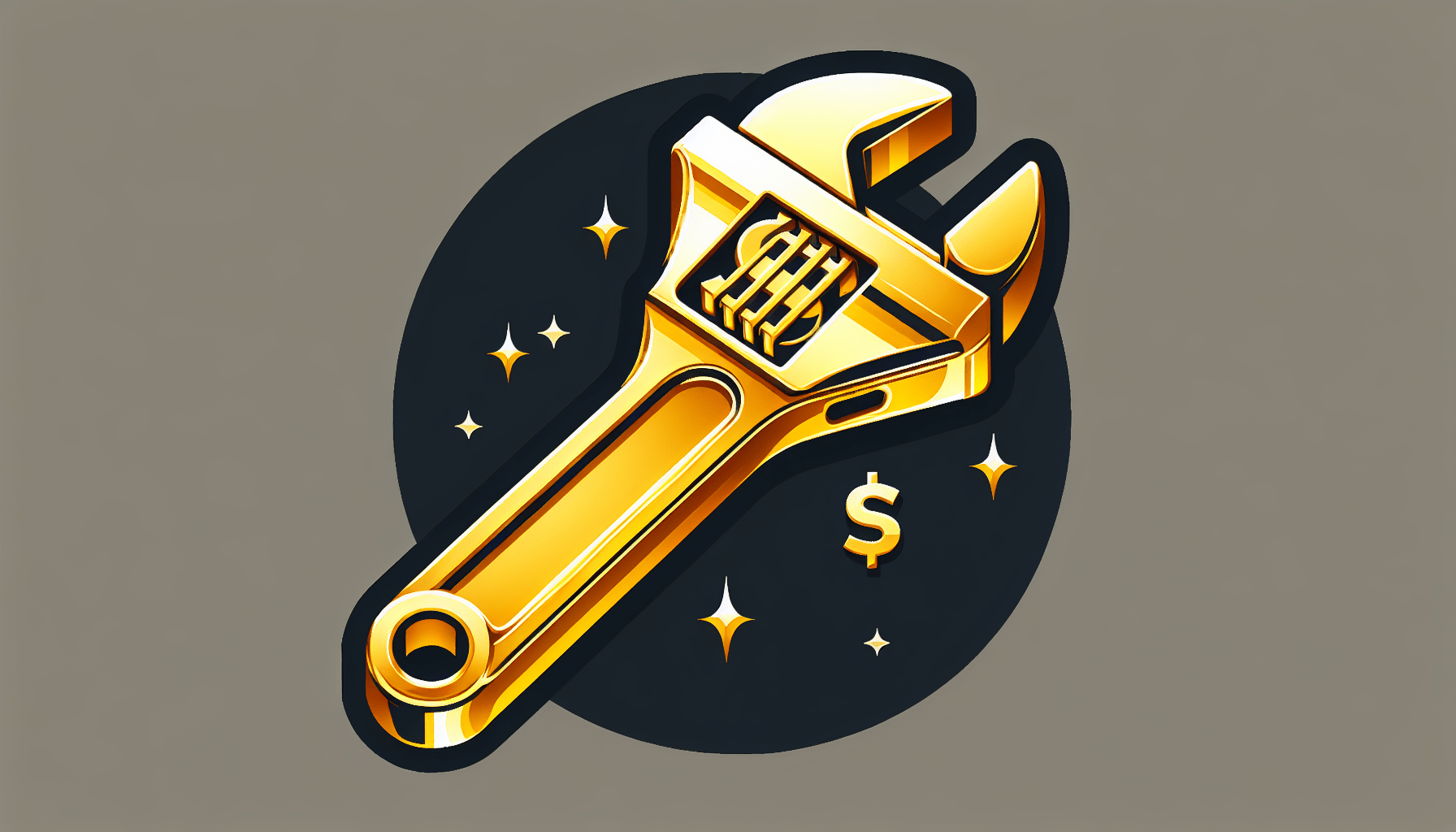Have you ever been faced with a leaking faucet or a clogged drain, and immediately wondered, “How much does it cost for a plumber?” Well, look no further, because in this article, we will explore the various factors that determine the cost of hiring a plumber. From the complexity of the job to the time it takes to complete, we will break down everything you need to know about the cost of plumbing services. So, whether you’re dealing with a minor repair or a major renovation, read on to discover what you can expect to pay for a plumber and how to ensure you’re getting the best value for your money.
Factors that influence the cost of plumbing services
Type of plumbing issue
The type of plumbing issue you are facing can greatly impact its cost. Simple and common problems like a clogged drain or a leaky faucet may be relatively inexpensive to repair. However, more complex issues such as pipe bursts or sewer line repairs can be more costly due to the additional time, labor, and materials required.
Severity of the problem
The severity of the plumbing problem also plays a significant role in determining the cost. Minor issues that can be resolved quickly, such as a running toilet or a small leak, will generally be less expensive to fix compared to major problems that require extensive repairs or replacements.
Location and accessibility
Another factor that affects the cost of plumbing services is the location and accessibility of the plumbing system. If the problem is easily accessible and does not require significant effort to reach, the cost may be lower. However, if the issue is located in a hard-to-reach or confined space, such as underground pipes or behind walls, it may require more time, effort, and specialized equipment, resulting in higher costs.
Time of service
The time of service can also impact the cost of plumbing services. If you require immediate assistance during evenings, weekends, or holidays, emergency rates may apply, which are typically higher than regular rates. On the other hand, scheduling non-emergency services during regular business hours may be more cost-effective.
Experience and expertise of the plumber
The experience and expertise of the plumber you hire can influence the cost of the services. Highly experienced and reputable plumbers may charge higher rates due to their specialized skills and knowledge. However, their expertise often ensures quality workmanship and efficient problem-solving, which can save you money in the long run by preventing further issues or the need for repeat repairs.
Emergency or non-emergency situation
Emergency plumbing services generally incur higher costs compared to non-emergency services. This is because emergency calls often require immediate response and may involve additional expenses such as prioritized scheduling, overtime pay for the plumber, or expedited delivery of materials and equipment. Non-emergency services, on the other hand, can be scheduled at a time that is convenient for you and may result in lower costs.
Materials and equipment required
The materials and equipment needed to resolve your plumbing issue can also impact the overall cost. Depending on the problem, certain specialized tools, fittings, or replacement parts may be required. The cost of these materials can vary, and it’s important to discuss with the plumber upfront to understand the potential expenses involved.
Permits and inspections
In some cases, plumbing repairs or installations may require permits from local authorities. These permits often come with fees that can increase the cost of the overall project. Additionally, certain plumbing work may require inspections to ensure compliance with building codes and regulations. The cost of these permits and inspections should be factored into your budget when considering the total cost of your plumbing services.
Common plumbing services and their average costs
Toilet repairs
On average, toilet repairs can range from $75 to $250. Common toilet issues include clogs, leaks, and flushing problems. The cost can vary depending on the nature of the problem and any replacement parts needed.
Leak detection and repair
Leak detection and repair services typically cost between $150 and $600. The exact cost depends on the complexity of the leak, the location of the leak, and the amount of repair work required.
Pipe replacement
The cost of pipe replacement can range from $500 to $2,000. Factors such as the length and material of the pipes, the accessibility of the pipes, and the complexity of the installation can affect the overall cost.
Water heater installation
For water heater installation, you can expect to pay between $600 and $1,500. The cost varies depending on the type of water heater, its size, and any additional electrical or plumbing work required.
Drain cleaning
Drain cleaning services typically range from $100 to $500. The cost depends on the severity of the clog, the location of the drain, and the methods used to clear the blockage.
Sewer line repairs
The cost of sewer line repairs can range from $1,000 to $10,000. Factors such as the length of the sewer line, the extent of the damage, and the need for excavation or trenchless repair methods can greatly influence the final cost.
Fixture installation
For fixture installation, you can expect to pay between $150 and $400. The cost varies depending on the type of fixture, its complexity, and any additional plumbing work required.
Bathroom or kitchen remodeling
When it comes to bathroom or kitchen remodeling, costs can range from $4,000 to $15,000. The final cost depends on the scale of the remodeling project, the choice of fixtures and materials, and any additional plumbing work involved.
Septic tank maintenance
For septic tank maintenance services, you can expect to pay between $200 and $500. This includes services such as pumping, cleaning, and inspections.
Outdoor plumbing repairs
The cost of outdoor plumbing repairs can range from $200 to $1,000. This may include repairs to outdoor faucets, sprinkler systems, or sewer lines running to exterior fixtures.
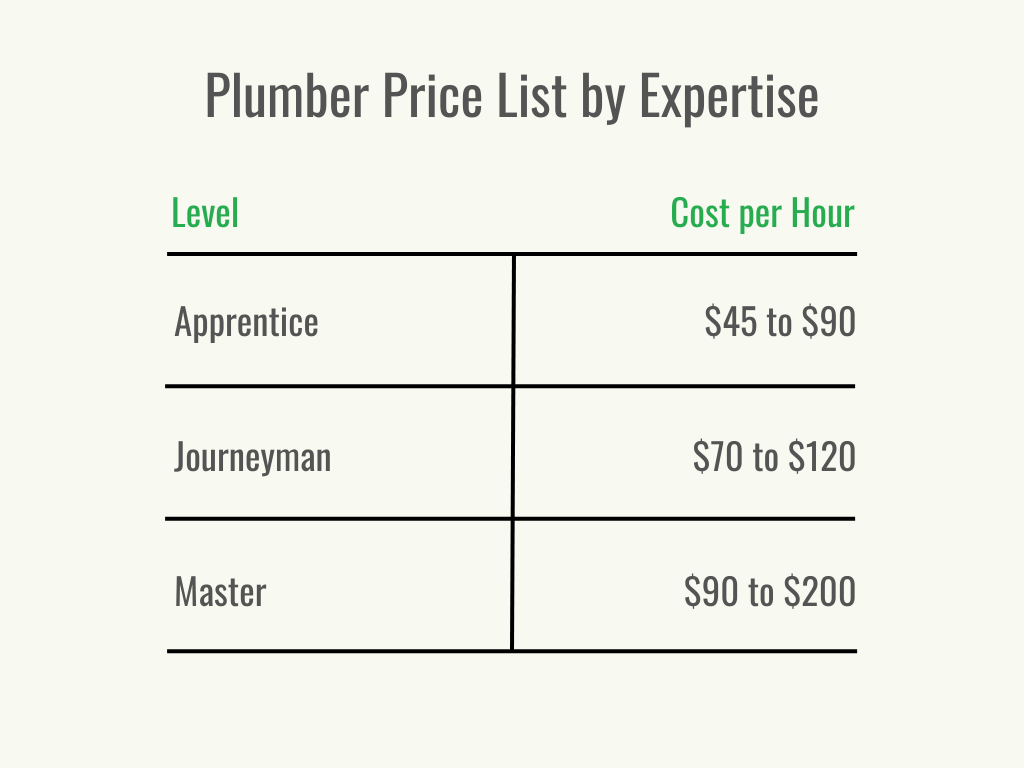
This image is property of empire-s3-production.bobvila.com.
Hourly rates vs. fixed project rates
Hourly rates
Some plumbers charge an hourly rate for their services. The hourly rate typically includes the plumber’s labor and expertise. The average hourly rate for a plumber ranges from $45 to $200, depending on factors such as location and experience.
Fixed project rates
In addition to hourly rates, some plumbers offer fixed project rates. With a fixed project rate, the plumber will assess the scope of the project and provide a set price for the entire job. This can be beneficial if you prefer to know the total cost upfront.
Pros and cons of each pricing model
Both hourly rates and fixed project rates have their pros and cons. Hourly rates can be advantageous if the project is relatively small and can be completed quickly. Fixed project rates, on the other hand, provide greater cost certainty and can be helpful for larger, more complex projects. Ultimately, the choice between the two pricing models depends on the specific needs of your plumbing project and your personal preferences.
Average cost ranges for common plumbing services
To give you a clearer idea of average costs for common plumbing services, here are some estimated price ranges:
- Toilet repairs: $75 – $250
- Leak detection and repair: $150 – $600
- Pipe replacement: $500 – $2,000
- Water heater installation: $600 – $1,500
- Drain cleaning: $100 – $500
- Sewer line repairs: $1,000 – $10,000
- Fixture installation: $150 – $400
- Bathroom or kitchen remodeling: $4,000 – $15,000
- Septic tank maintenance: $200 – $500
- Outdoor plumbing repairs: $200 – $1,000
Remember that these are average cost ranges and can vary depending on your location, the specific details of the job, and the plumber you hire. It’s always a good idea to request multiple quotes to compare and find the best deal for your plumbing needs.
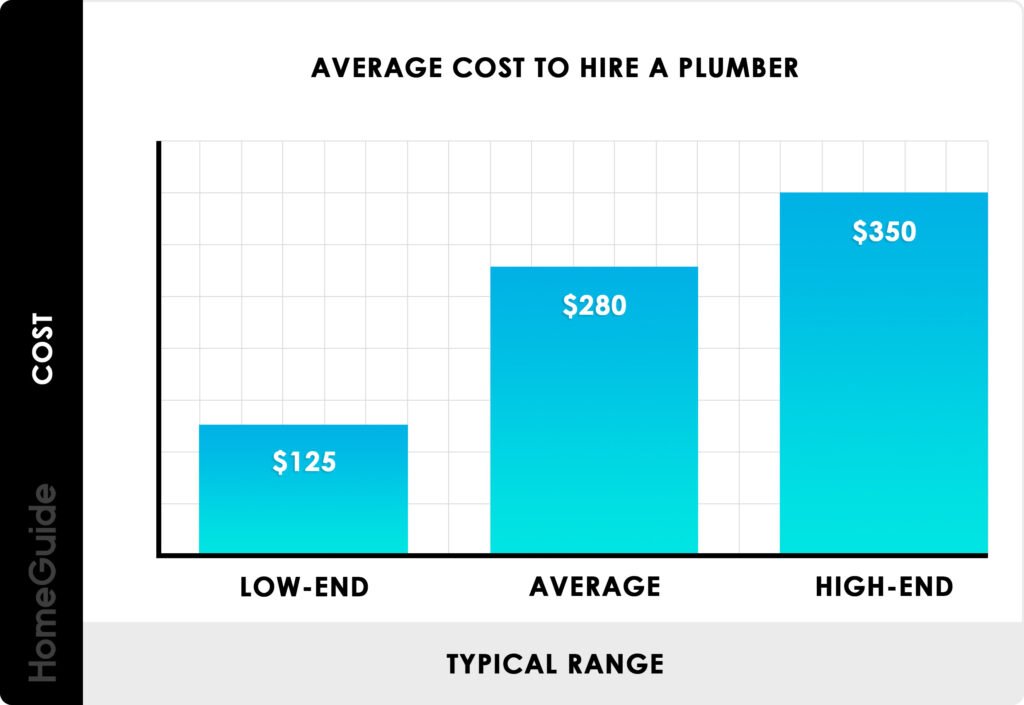
This image is property of static.homeguide.com.
Additional costs to consider
When budgeting for plumbing services, it’s important to consider additional costs that may arise. Here are some common additional costs to be aware of:
Permit fees
If your plumbing project requires permits from local authorities, you may need to budget for permit fees. These fees can vary depending on your location and the nature of the plumbing work being done.
Material and equipment costs
In addition to labor costs, you should also consider material and equipment expenses. Depending on the repairs or installations needed, certain parts, fittings, or fixtures may need to be purchased. It’s a good idea to discuss with your plumber upfront to get an estimate of these costs.
Travel charges
If you live in a remote area or far from the plumber’s location, you may incur additional travel charges. These charges typically cover transportation costs and can vary based on the distance traveled.
Inspection fees
For certain plumbing projects, inspections may be required to ensure compliance with building codes and regulations. These inspections often come with associated fees that should be factored into your budget.
Remember to discuss these potential additional costs with your plumber during the estimation process to avoid any surprises and ensure you have a comprehensive understanding of the total expenses involved.
Finding a reputable and affordable plumber
When it comes to finding a reputable and affordable plumber, there are several steps you can take to make an informed decision:
Ask for recommendations
Ask friends, family, neighbors, or colleagues for recommendations. Personal referrals can be valuable in finding a trustworthy plumber with a track record of satisfactory service.
Check online reviews
Browse online review platforms, such as Yelp or Angie’s List, to read customer reviews and ratings for different plumbing companies. Pay attention to the overall consensus and any recurring positive or negative feedback.
Request multiple quotes
Contact multiple plumbers to get detailed quotes for your specific plumbing needs. This will allow you to compare prices, services offered, and any additional costs involved.
Verify licenses and insurance
Before hiring a plumber, verify their licenses and insurance. Licensed plumbers are typically more knowledgeable and reliable, while insurance provides protection in case of any accidental damages or injuries during the project.
Ask about warranties and guarantees
Inquire about any warranties or guarantees offered by the plumber. Reputable plumbers often provide warranties on their workmanship or guarantees to fix any issues that may arise after the job is completed.
Consider experience and expertise
Take into account the experience and expertise of the plumber. Look for plumbers with a proven track record and years of experience in handling similar plumbing issues. Experienced plumbers tend to deliver higher-quality work and may be more efficient in addressing your needs.
Evaluate communication and professionalism
During your initial interactions, pay attention to the plumber’s communication skills and professionalism. A good plumber should be responsive, courteous, and transparent in their communication. This will help ensure a positive working relationship and a smoother overall experience.
By following these steps, you can find a reputable and affordable plumber who meets your specific requirements and delivers quality service at a fair price.
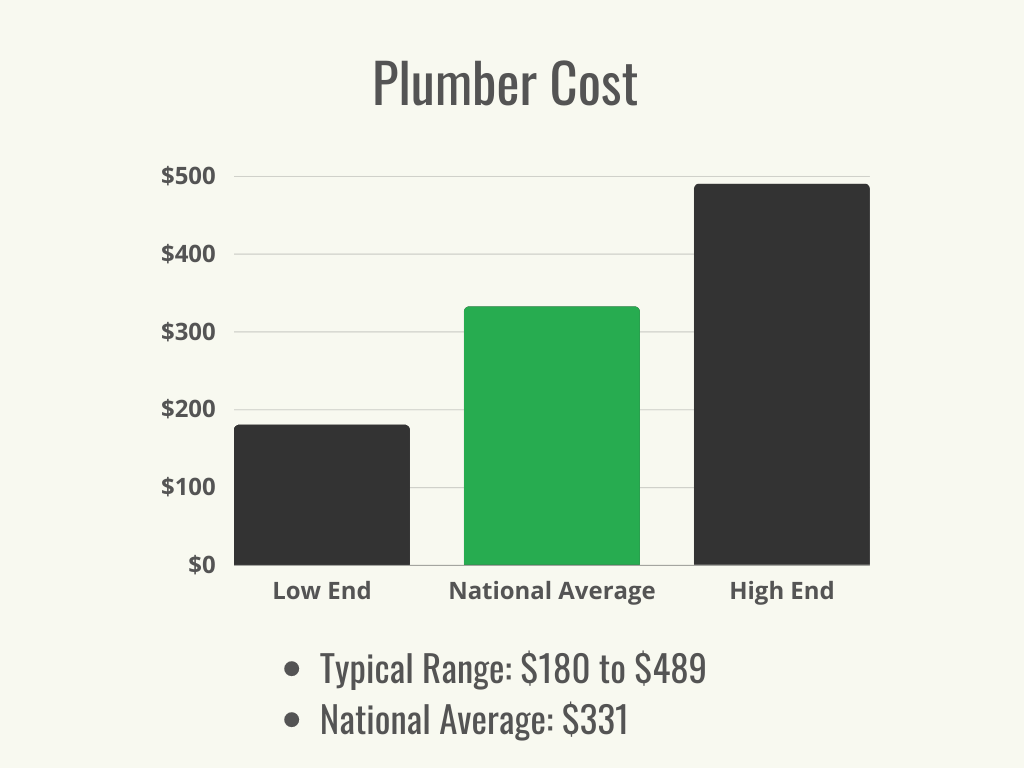
This image is property of empire-s3-production.bobvila.com.
Tips for minimizing plumbing costs
While plumbing issues can be unexpected and costly, there are steps you can take to minimize your expenses:
Regular maintenance and inspections
Invest in regular maintenance and inspections of your plumbing system to identify and address potential issues before they escalate into major problems. Routine maintenance can help prevent costly emergencies and extend the lifespan of your plumbing fixtures and systems.
Promptly address small issues
Don’t ignore small plumbing issues, such as leaks or drips. Addressing them promptly can prevent further damage and more expensive repairs in the future. Small leaks can waste water and can also lead to structural damage if left unattended.
Avoid DIY if unsure
Unless you have the necessary experience and expertise, it’s generally best to avoid DIY plumbing repairs. Improperly executed repairs can result in more extensive damage and higher costs in the long run.
Compare and negotiate prices
Obtain multiple quotes from different plumbers and compare their offerings. Don’t hesitate to negotiate prices to find the best deal for your budget. Remember to consider factors beyond just the price, such as reputation, experience, and guarantees.
Ask about discounts or promotions
Plumbing companies may offer discounts or promotions from time to time. Inquire about any ongoing deals that may help reduce your costs. For example, some plumbers offer discounted rates for first-time customers or seasonal promotions.
Consider energy-efficient options
When replacing plumbing fixtures or systems, consider opting for energy-efficient models. Although they may have a higher upfront cost, energy-efficient options can save you money in the long run through reduced water and energy consumption.
By applying these cost-saving tips, you can keep your plumbing expenses in check and prevent unnecessary financial strain.
Additional considerations
In addition to the factors and tips mentioned above, there are a few other considerations to keep in mind when it comes to plumbing services:
Insurance coverage
Check your homeowner’s insurance policy to understand what plumbing repairs or damages are covered. Some policies may cover certain types of plumbing issues, such as water damage caused by burst pipes.
Warranty options
When purchasing new plumbing fixtures or systems, inquire about the warranty options available. Manufacturers often provide warranties that can help cover repair or replacement costs within a specific period.
Emergency services
Consider whether the plumber you choose offers emergency services. Plumbing emergencies can happen at any time, and having a reliable plumber who can quickly respond to urgent situations is crucial.
Financing options
If you’re concerned about the upfront costs of plumbing services, inquire about financing options with your plumber. Some companies may offer payment plans or financing options to help you manage the costs over time.
By considering these additional factors, you can make more informed decisions and ensure that all aspects of your plumbing needs are covered.
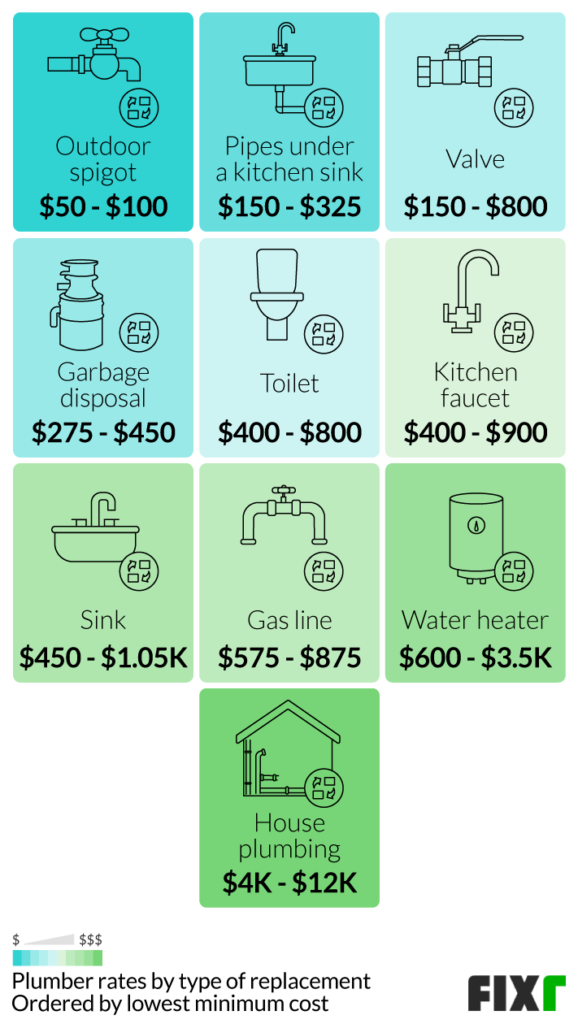
This image is property of assets.fixr.com.
Average plumber rates in different locations
Plumber rates in urban areas vs. rural areas
Plumber rates can vary depending on whether you live in an urban area or a rural area. In general, plumbers in urban areas tend to have higher rates due to factors such as higher costs of living, greater competition, and increased demand for their services. Plumbers in rural areas may charge lower rates due to lower overhead costs and a less saturated market.
Geographical cost differences
Plumbing costs can also differ based on geographical locations within the same country or region. Factors such as local economic conditions, cost of living, and the availability of plumbing resources can influence the average rates charged by plumbers in specific areas.
To get an accurate estimate of plumber rates in your location, it’s best to contact local plumbing companies and request quotes tailored to your specific needs.
Conclusion
The cost of plumbing services can vary based on several factors, including the type and severity of the problem, location and accessibility, time of service, experience and expertise of the plumber, whether it’s an emergency, materials and equipment required, permits and inspections, and additional costs. Understanding these factors and considering various pricing models, such as hourly rates or fixed project rates, can help you plan and budget for plumbing services effectively.
When seeking a plumber, it’s essential to find a reputable and affordable professional by asking for recommendations, checking online reviews, requesting multiple quotes, verifying licenses and insurance, asking about warranties and guarantees, considering experience and expertise, and evaluating communication and professionalism. By following these guidelines, you can ensure quality service without overspending.
To minimize plumbing costs, regular maintenance and inspections, promptly addressing small issues, avoiding DIY repairs, comparing and negotiating prices, taking advantage of discounts or promotions, and considering energy-efficient options can all help reduce expenses. Additional considerations, such as insurance coverage, warranty options, emergency services, and financing, should also be taken into account to make well-informed decisions.
Remember, plumber rates can vary based on the location, whether it’s an urban or rural area, and geographical cost differences within a country or region. To get the most accurate cost estimates, it’s best to reach out to local plumbers for quotes tailored to your specific plumbing needs.
By understanding the factors influencing plumbing costs, finding a reputable plumber, applying cost-saving tips, and considering additional factors, you can navigate the world of plumbing services with confidence and make informed decisions that align with your budget and needs.
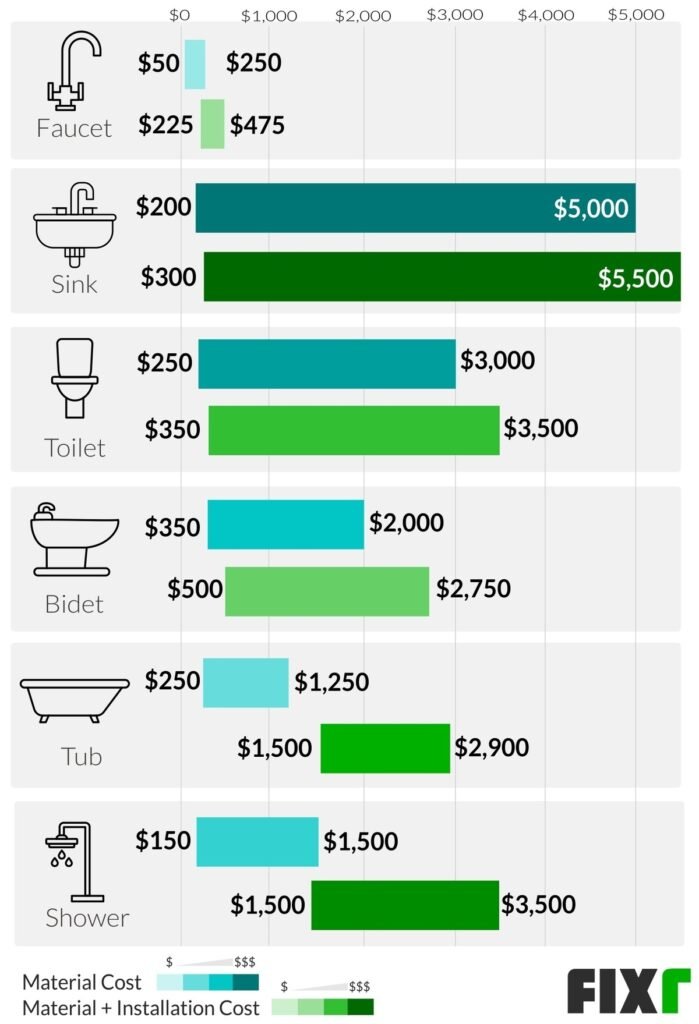
This image is property of assets.fixr.com.


